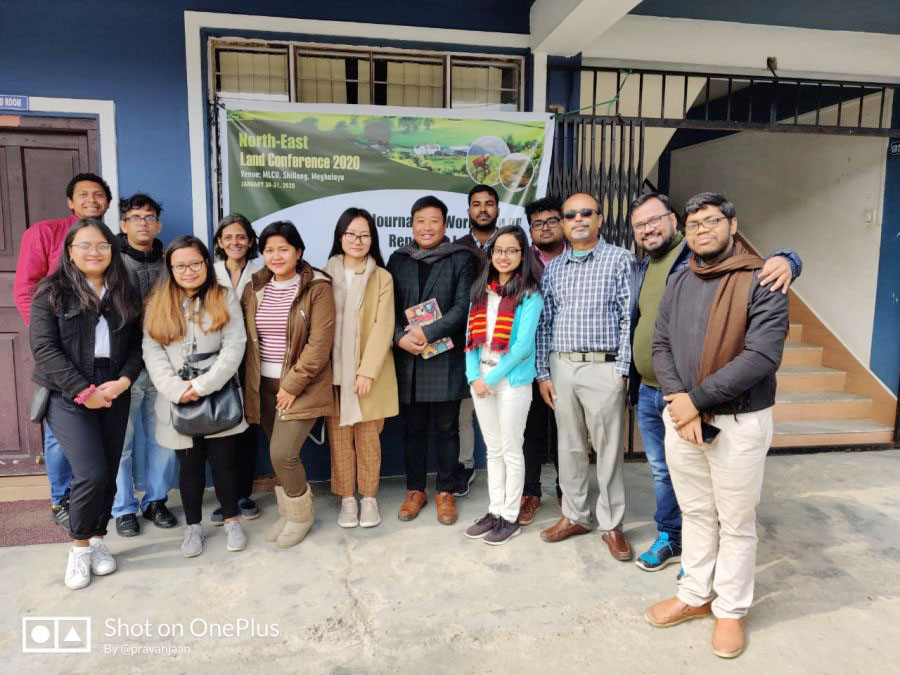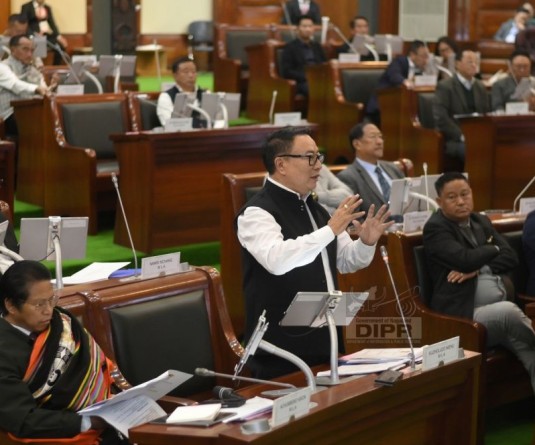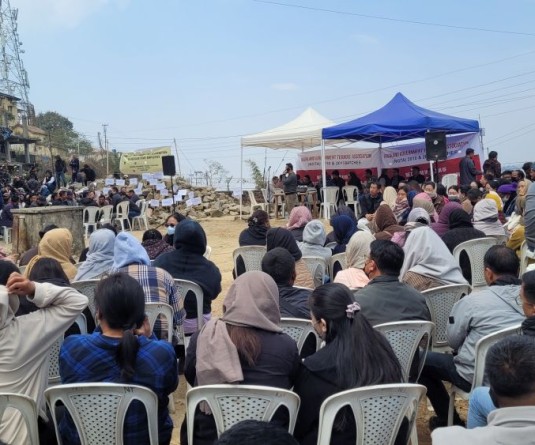‘Reporting on land rights is need of the hour’

Journalists from different organizations in the Northeast states during the Journalism training workshop on 'Reporting Land Rights' for North East India held at Martin Luther Christian University, Shillong on January 29.
Journalism training workshop on land and property rights and its impact on people
Morung Express News
Shillong | January 31
Journalism training workshop on 'Reporting Land Rights' for North East India was held at Martin Luther Christian University (MLCU), Shillong, Meghalaya on January 29.
The workshop was organized as a pre-conference event for the 1st North East Land Conference (NE Land Con 2020) held on January 30 and 31 at MLCU, Shillong, jointly organized by Thomson Reuters Foundation, MLCU, Foundation for Ecological Security (FES) and NRMC-CLG (Center for Land Governance).
Rina Chandran, Thomson Reuters Foundation; Pranab Ranjan Choudhury, Vice President, NRMC-CLG; Patricia Mukhim, Editor, The Shillong Times and Activist Agnes Kharshüng were the resource persons for the workshop.
Briefing on the introduction to the workshop, Rina Chandran shared about why reporting land rights is important. Rina said land rights are human rights which affects every sphere of one's being. According to a survey conducted by Land Conflict Watch, more than 6.7 million people are affected by land conflicts in India and around 720 conflicts happens in a year alone.
Land and property matters make about two-thirds of all civil cases in India.
As per PAN Asia-Pacific survey, more than 108 people were killed in 23 countries on land disputes.
More than 164 farmers, land rights activists were killed in 19 counties in 2018 as per Global Witness survey.
Acknowledging the humanitarian issue on land disputes, Rina who is a seasoned land rights reporter based in Bangkok said reporting land rights is the need of the hour.
She further shared inputs to the journalists on how to tell stories of land conflicts. Data, legislation, history, future and the people were important sources to look for while reporting on land issues, explained Rina through a PowerPoint presentation.
Pranab Choudhury gave a broad overview of land laws and frameworks in the region. Sharing about the complex nature of land laws in the Northeast states, he talked about who owns and control land rights in the region.
He divulged that two types of Land Administration Systems co-exist in most parts of the Northeastern states - Community land which is governed by the customary law and individual ownership of land which is regulated by the land tenurial laws of the land.
He explored the Centre vs State vs Community rights over land in his detailed PowerPoint presentation.
Giving an instance on the land tenure system of Nagaland, Pranab said each tribe, and in many cases, each village has its own unique land tenure systems, where 92% is a community owned land.
He broke down the frameworks of land rights in the Northeast through 'Community, Customs and Contestations.'
Patricia Mukhim spoke on issues around indigenous rights, women and land.
Meanwhile, Meghalaya activist Agnes shared about development impacts on land and people. She also shared on her journey of documenting illegal rat-hole mining in the hills of Meghalaya and how she and her accomplice were attacked by the coal mafia in November 2018.
Altogether 10 journalists from different organizations in the Northeast states took part in the intensive training workshop.
The organizations were The Morung Express, Dimapur, Nagaland; Tripura Times, Agartala; The Telegraph, Guwahati; Asian News International (ANI), Agartala; EastMojo, Shillong; The Shillong Times, Shillong; Sikkim Chronicles, Gangtok; theefocalpoint.net, theenvoyweb.com, freelancer; United News of India (UNI), Agartala and Inside Northeast, Guwahati.






